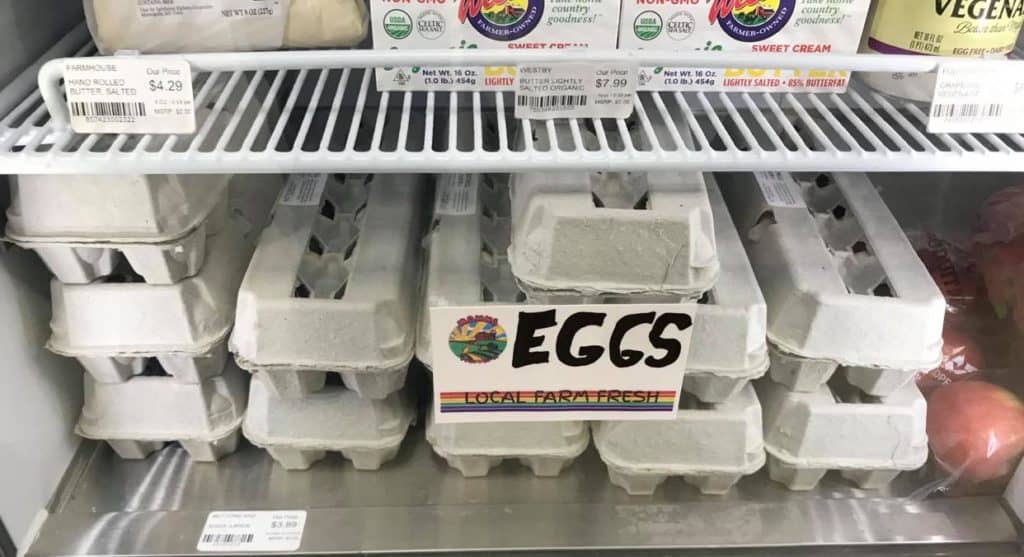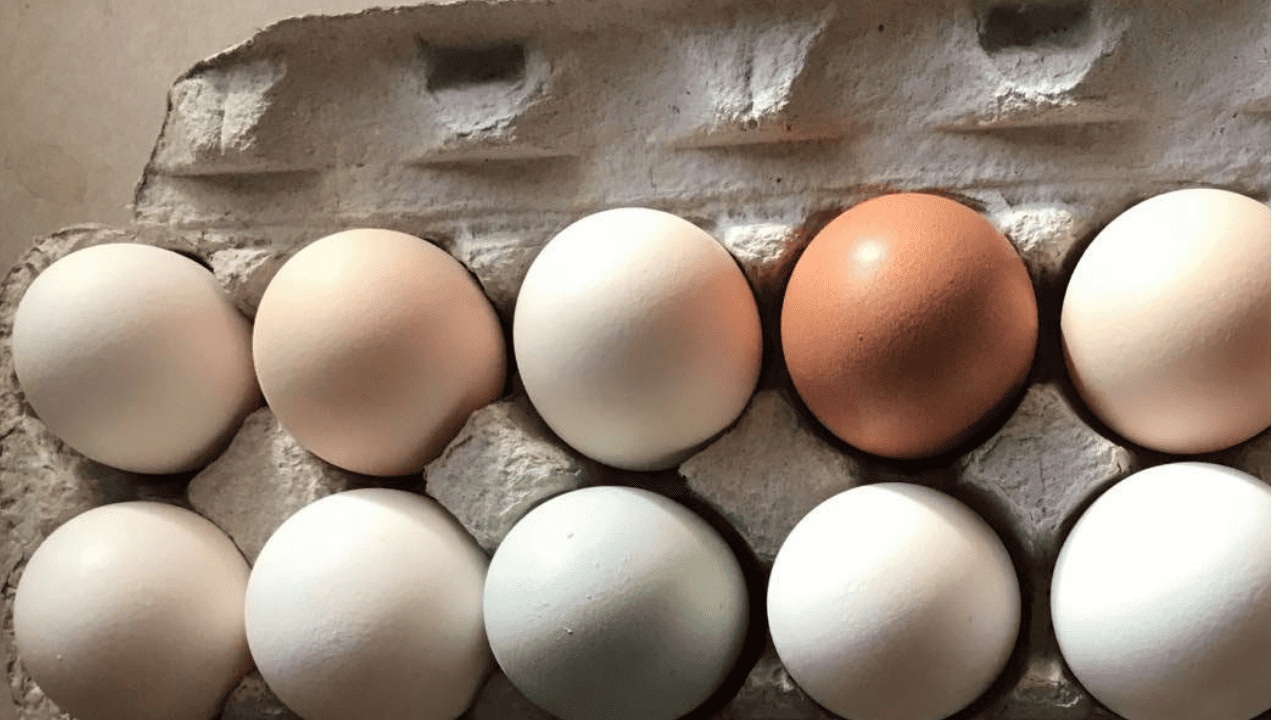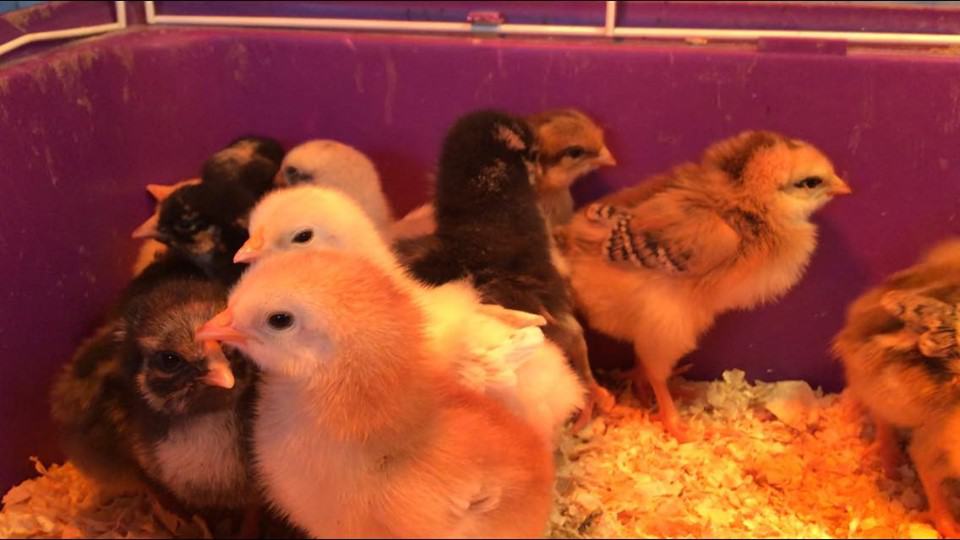How to Sell Eggs
If you have a flock that lays well, you have a great opportunity to sell eggs. Before you can do that, you’ll need to learn how to clean, candle, and package them. Here’s how we sell eggs at our farm.
Keep Your Eggs Clean
When selling eggs direct from you farm, you are not allowed to wash them. This is because eggs have a natural protective layer over them that keeps bacteria out. In Europe they don’t allow for the washing of eggs. Matter of fact they don’t even refrigerate them. Here in the US meanwhile, commodity eggs are run through a chemical sanitizer and other processes that we can’t replicate on a small farm. Forbes has a great article explaining the process.
Keeping your eggs as clean as possible from the get-go will maximize the amount of sell-able eggs you will collect. Makes sure your nest boxes have plenty of clean nesting material and refresh it often. If you have a large enough coop area, consider keeping your girls indoors on a particularly mucky day.
No matter what you do you will always have eggs that get dirty. If it is only minimal you can (at least here in Minnesota) remove it in a few acceptable ways. Some eggs won’t be clean enough to sell. Those are the eggs we typically keep for our family or feed to the pig.
This post contains affiliate links, which means I make a small commission at no extra cost to you. See my full disclosure here.
Collecting Eggs
Eggs should be collected every day. During the warmer months our chickens are done laying by around 3:00 p.m. so we collect them in the evening. In the winter our coop gets below freezing so we collect eggs twice a day.
There might be an egg outside of the nest box and you aren’t sure how old it is. Best keep it for your own consumption. If you discover a hen has been sitting on eggs for more than a day, keep those for your own consumption too. Now if that hen has been on them for more than two days and you have a rooster around, you could let her hatch those eggs out for chicks in 21 days. Personally I wouldn’t eat eggs that had been sat on by a hen for more than a day or two, as those baby chicks develop very quickly. You are likely to have blood spots and, depending on how long it has been, blood vessels and other early chick development. Not exactly appetizing.
Cleaning Eggs
After we collect our eggs we clean them up. Every egg, no matter how clean it looks, gets a quick wipe with a dry paper towel. Then into the carton it goes.
If there is an egg that could use a little cleaning, we use 220 grit sandpaper. Then I give it a wipe down with the dry paper towel. Again, some eggs are going to be beyond the help of sandpaper.
That’s all there is to it!

Candling Eggs
Next we use our egg candler to check the egg for any weirdness. Cracks, blood spots, or other abnormalities will either send that egg to our personal carton or into the pig bucket.
Once the egg passes the candling test it is officially ready for sale.
Packaging Eggs for Sale
Our state puts out guidelines that must be followed for packaging. We buy address labels and print our own. For us it must include certain statements, the egg grade, size, Julian date, and “Best by” date. The USDA has a big ol’ packet about grading and sizing. The Julian date is a three digit number based on what day of the year it is. January first would be 001. January 31st would be 031 and so on. Your expiration date (again in our state) is 30 days out from the Julian date. So we might have a Julian date of 001 with an expiration of 1/31.
We re-use our own cartons but only if they are clean. Folks are always so generous bringing you cartons when they find you sell eggs. Check with your state to see if you can use them or not.
After your eggs are clean, candled, and labeled, store them in your refrigerator until they head off to the market.
Where to sell eggs?
Depending on your location you might be able to stick a sign at the end of your driveway “Farm Fresh Eggs!” and make all the sales you want. Friends, neighbors, community groups, are all great options when starting out. If you decide to get bigger than that, co-ops and restaurants are a nice next step. If you want to advance even further, you can reach out to area schools. Make sure when approaching potential customers you let them know there likely will be a dry spell at some point during the year when your girls take a break to molt.

Check with your state.
Every state may have different guidelines and regulations on selling eggs. Please be sure to check with your state’s department of agriculture before you start slinging those yolks.
Shop this Post
- Egg Cartons- We like to order from Zellwin Farms
- Labels
- Candler
- Sand Paper
See how we do it!
Pin it for later









Great info thanks for sharing!
That’s so interesting, thanks for sharing!
Thank you for sharing all this great info, Kelsey! I never knew about candling, so interesting. Now I wonder why I get some eggs with blood spots from the store…maybe the stores don’t have the same restrictions? Things that make you go hmmm. 😉